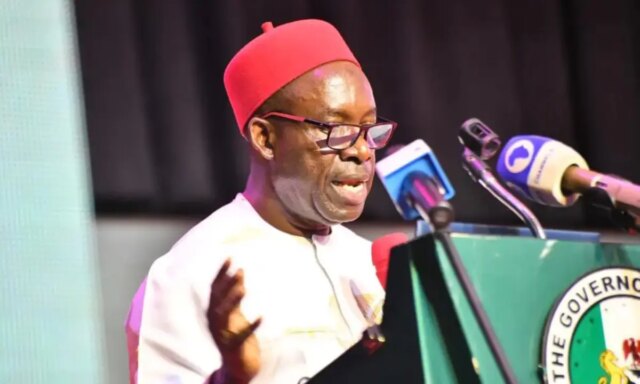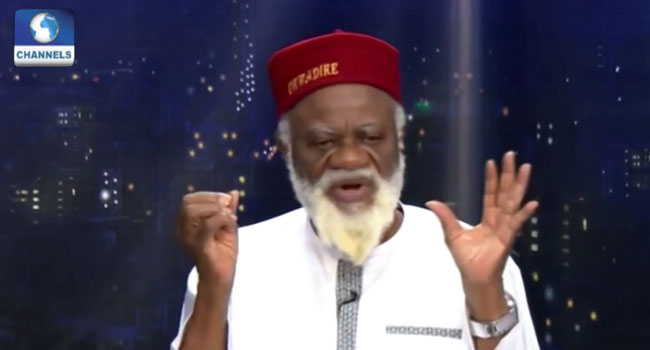A social psychologist’s constant concern is with projects and policies that seek to bring about material and physical change without also bringing about a behavioural shift. For a considerable amount of time, Anambra State has been reduced to a place where a great number of indigenes travel back for Christmas, to marry, and to be buried. Although Anambra is a really wealthy state, it is not a livable one yet, and the Soludo government has set out to change that status. It’s such a herculean task.
A state’s quality of life is about living conditions—that is, how good or appropriate a state is for human habitation. Livability refers to an urban system that contributes to the physical, social, and mental well-being and personal development of all its inhabitants. It is about a delightful and desirable living environment that offers and reflects cultural and sacred enrichment, an environment where young people can develop social skills, a sense of autonomy, and identity without feeling pressured to relocate to safer or better places for their survival and well-being. Liveability is therefore measured by quality-of-life factors such as access to good roads, fresh water, food, housing, transport, health care, education, and a safe and stable built and natural environment.
That’s precisely the goal that Soludo has set for his physical and behavioural adjustments to make Anambra State truly livable.
Under Soludo, infrastructure construction is accelerating at a breakneck pace. The majority of roads built, even those built less than ten years ago, have failed or are deteriorating and are being reconstructed alongside brand-new ones. Throughout the state, there are about 500 km of roads in various stages of completion. Many of these roads are already finished and just waiting to be commissioned during the anniversary of Soludo’s second year in office.
Unprecedented attention has also been paid to other important areas of the Anambra economy and development, including youth empowerment through the One-Youth-Two-Skills programme , which has been copied by the federal government, education, security, digitisation, and youth’s acquisition of digital skills.
However, ethical rebirth and social reengineering constitute one area that will play a significant role in the process of creating and transforming Anambra into a livable one-city state. A twenty-first-century city or state is made up of two components: the physical development of the state is one, and the residents’ changing negative behaviours is the other.
Like other Igbo states, Anambra bases its fundamental identity partly on marriage and burial. Up until now, Anambra burial had been a significant burden for the living. The custom of burial had evolved into a kind of funfair that the locals referred to as “a celebration of life”—a term that would be more accurate to refer to as a “celebration of death.”
In this poor social milieu, the wealthy of Anambra extraction do not intend to return to Anambra to stay, not even in retirement. They would rather reside in Enugu since it is a more ordered and planned city. For weekends and nightlife, people from Anambra are drifting to Asaba and Enugu. The unfriendly Anambra environment made worse by insecurity was another reason why many enterprises were leaving Anambra State for Asaba, Lagos, Ogun, and other locations before Soludo’s arrival. Soludo inherited debilitating insecurity and the unlivable conditions and has been addressing them head-on.
Making Anambra a habitable state is a difficult task that Soludo set out to accomplish. He has addressed a number of issues, one of which is the burial of the dead, which has grown to be an unnecessary burden for most families who are pressured by society and peers to take on more than they can afford.
Before now, in order to bury their deceased, several families were forced to sell their land. Many more take out loans for burials. Some construct entirely new homes that the deceased had never lived in, or they completely renovate their existing homes, all to ensure that the funerals adhere to the pervasive peer and social norms.
In an attempt to live up to these vacuous ideals, many families have plunged into poverty, from which many have never really recovered. In response to the threat posed by the practice of burying the dead at the expense of the living, Soludo created the Anambra State Burial Law, which sets aside only one day for interment and all the ceremonies and does away with unnecessary expenses that were inserted purely as social graces to make the funeral spectacular and carnivalesque. In fact, before Soludo arrived, burial in Anambra State had turned into a tragic contest – ‘my burial was bigger than yours’.
Anticipated opposition to Soludo’s funeral law and its execution has arisen. The wealthy who use funerals as a platform to flaunt their wealth are not happy. But for Soludo, setting up enterprises that create jobs and empowering the youth are the better ways for the wealthy and powerful from Anambra to flaunt their wealth rather than indulge in the ridiculous practice of celebrating death.
Sadly, too, the church—which rightfully should applaud the governor for taking such progressive action to liberate the state—is also protesting the burial law and its execution, despite resulting in a more than 50% cut in funeral costs. The church in Anambra State is deeply involved in politics and does not respect the canonical rule that separates the state and the church.
Governor Soludo lost his father soon after the enactment of the state burial law and buried his own father within one day and in full compliance with the burial law’s express and extant provisions. If the governor has led by example, other Anambra citizens and, more importantly, the church ought to follow the example without complaints.
Governor Soludo is nonetheless pursuing the law’s implementation in spite of resistance, even from unexpected quarters. The reason is that sanitising funeral customs is one behavioural shift that Anambra needs to make the state habitable and decent.
The governor should also give equal consideration to marriage customs as yet another area that needs sanitising. The cost of traditional marriage has also increased phenomenally, deterring younger people from getting married. The age at which men in Anambra can get married now is getting close to forty. If sixty years is the usual retirement age, then marrying at forty one wonders when the couple will be able to raise their kids before retiring.
In order to make marriage and burial in Anambra State more respectable, inexpensive, and less scandalous, Soludo must be given support in order to bring about these major changes. The people need to reset their mentality on a number of issues, and marriage and burial are at the top of the list.
Yes, Soludo is on the right track. His opponents are busily taking things out of context and making light of these fundamental changes, which were engineered by the governor as solutions. These opponents play politics with everything even when they know that a change will result in a better life.
Ndi Anambra, who have built exquisite homes in their villages but are unable to stay there due to unlivable conditions and insecurity, should flow with the change for their own good if they truly want a livable state, one where they can return to and live in, feel completely at home and safe, and never feel the need to flee to Asaba or Enugu.
This way, Anambra State will definitely claim its pride of place in no distant time—not just a state of billionaires but a state where such great men can truly call home and long to return to and stay.
·Dr. Law Mefor, an Abuja-based forensic and social psychologist, is a fellow of The Abuja School of Social and Political Thought; drlawmefor@gmail.com; Twitter: @Drlawsonmefor









